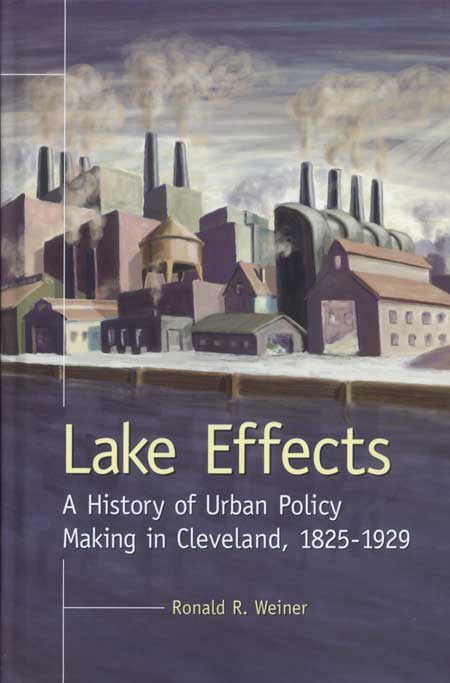Lake EffectsA History of Urban Policy Making in Cleveland, 1825–1929Ronald R. WeinerUrban Life and Urban Landscape |
 5/25/2005 288 pp. 6x9  $14.95 CD 978-0-8142-9064-4 Add CD to shopping cart $24.95 paper 978-0-8142-5358-8 Add paper to shopping cart $159.95 cloth 978-0-8142-0989-9 Add cloth to shopping cart Shopping Cart Instructions Review/Change Shopping Cart & Check-out | |||
|
“Lake Effects is an imaginative and path-breaking analysis of the history of public policy in a major Midwestern city. No book has so successfully examined such a breadth of urban policy making in such a useful fashion.” —Robert Fairbanks, University of Texas at Arlington Weiner takes on the problem of Cleveland and how it got to be that way. He talks about the ‘regimes’ that made public policy out of shared assumptions of how the world worked, based sometimes on observations (sometimes incorrect) and sometimes on a set of principles about what was desirable, moral, proper, or possible. Weiner is wise, thorough, and always clear as a bell.” —Henry D. Shapiro Lake Effects is a history of urban policy making in the large Midwestern industrial city of Cleveland, Ohio. Urban policy making requires goal setting in four critical areas: economic development, urban growth, services, and wealth redistribution. Ronald Weiner shows how urban policy was conceived and implemented by the local governing elites, or regimes, between 1825 and 1929. Each regime—Merchant, Populist, Corporate, and Realty—set policy goals in the four areas; set priorities among the goals; and used their power, public and private, to guide the city toward these ends. Each regime dominated policy making for at least twenty years, and the successes and failures of each regime contribute to our understanding of how Cleveland became the city that it is today. The successes of the Merchant Regime’s economic development policy made Cleveland’s industrialization possible. The urban growth policy of the Corporate Regime built the downtown civic center and University Circle. However, the Populist, Corporate, and Realty regimes’ failures to plan for Cleveland’s economic future helped set in motion the declining economic fortunes so harshly in evidence today, and the triumph of the expansionist Realty Regime’s urban growth policy promoted heedless suburban development at the expense of the central business district and inner city. Ronald R. Weiner is professor of history at the Cuyahoga Community College. | ||||

